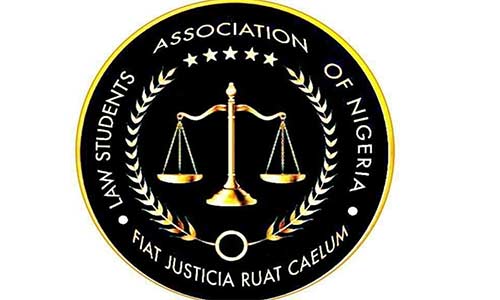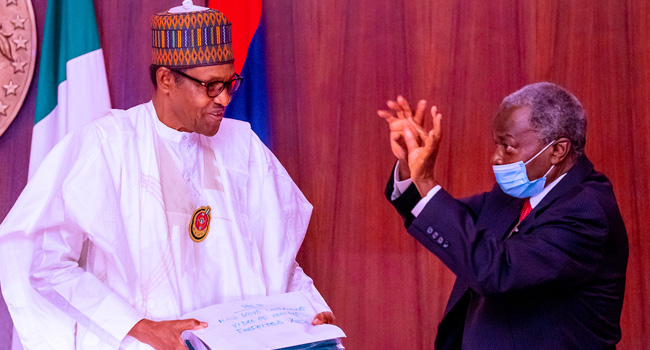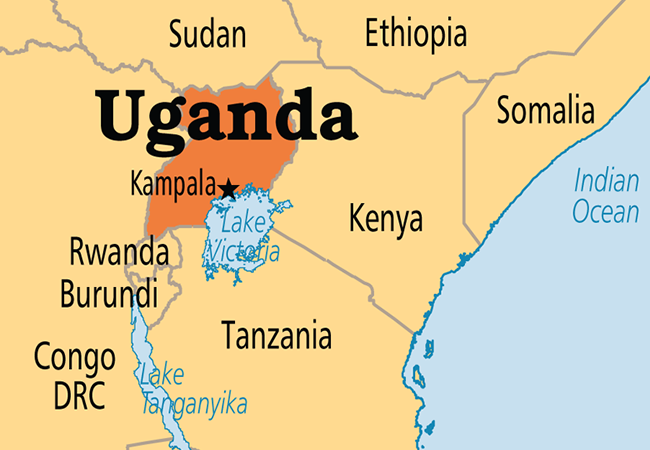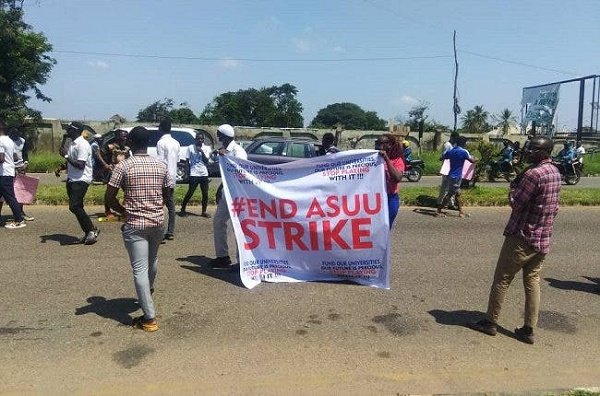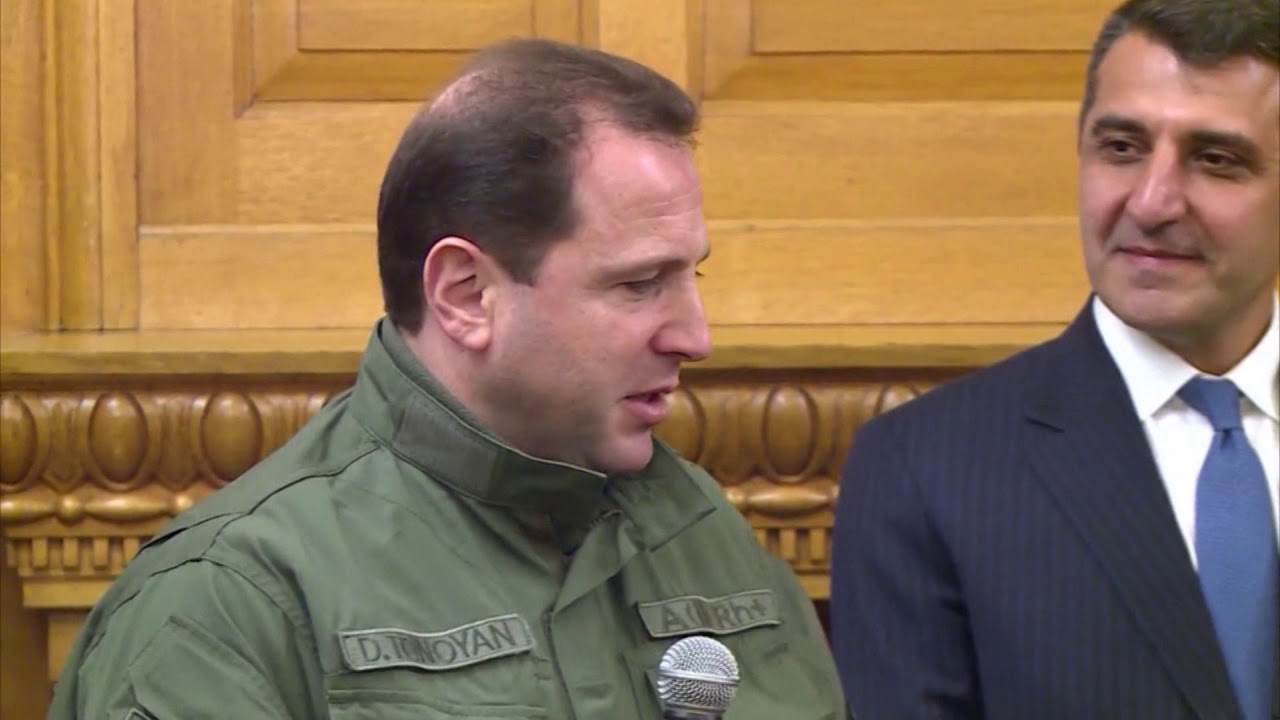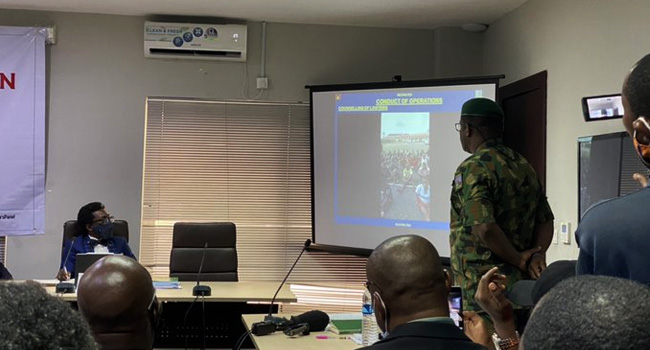Incessant strike actions by the Academic Staff Union of Universities (ASUU) have become the new normal in Nigeria’s educational system since 1999. It won’t be an exaggeration to say that most students of public universities have experienced the anomaly — which disrupts academic activities and elongates years of study. Over 20 years after Nigeria’s return to democracy, the narrative still remains the same as ASUU’s face-off with the federal government over the comatose state of Nigerian tertiary institutions drags on with no end in sight. Checks by TheCable Lifestyle showed that ASUU has gone on strike for more than 49 months — which is over four years — since 1999. With the ongoing industrial action embarked upon by the union this year already spanning over eight months, TheCable Lifestyle examines the timeline of ASUU strikes since 1999. 1999 For many Nigerians who endured the military junta, the country’s switch to democratic rule in 1999 was expected to signal a new dawn across all sectors. But not so for the education sector. Few months after Olusegun Obasanjo, the then president, was sworn in, ASUU embarked on a five-month strike that disrupted academic activities in public institutions. 2001 While the educational sector was yet to completely heal from the previous industrial action, ASUU once again embarked on another strike in 2001. But this time, it was to protest the “unjust” sacking of 49 lecturers by the University of Ilorin (UNILORIN). The strike lasted for three months and ended following the government’s promise to address the union’s concerns. 2002 Citing Obasanjo’s failure to implement his previous agreement with the union, ASUU declared another strike on December 29, 2002. The union had demanded proper funding of universities and the reinstatement of the 49 lecturers of the University of Ilorin that were sacked. The strike, however, ended after two weeks. 2003 In what was fast-becoming a recurring trend then, ASUU embarked on another six-month strike in 2003. The strike was over the federal government’s failure to implement its agreement bordering on poor funding of universities as well as the discrepancy in salary and retirement age of teachers. The union ended the industrial action in 2004. 2005 ASUU yet again declared another strike which lasted for three days. Some reports, however, claimed that the industrial action ended after two weeks. 2006 In 2006, the union announced another industrial action. ASUU had initially declared a three-day warning strike but the exercise lasted for one week before it was suspended. 2007 ASUU strike resumed again over unresolved issues in its previous agreements with the federal government. This time, the strike lasted for three months. 2008 The academic body again announced a one-week strike over the University of Ilorin’s refusal to reinstate the 49 lecturers it sacked despite a court ruling. Part of the issues that led to the strike includes ASUU’s demand for an improvement in the salary scheme for its members. 2009 The federal government’s failure to implement agreements reached with the union in previous years led to another fresh strike in 2009 which lasted for four months. The strike, which started in June, was called off in October after both parties entered the now popular 2009 ASUU/FG agreement. 2010 In spite of the expectations that greeted the 2009 agreement between ASUU and the federal government, it proved insufficient in resolving the lingering crisis. The union would embark on yet another strike in 2010 which lasted for over five months — 157 days. 2011 In 2011, the 2009 agreement again surfaced as the bone of contention. ASUU had accused the federal government of reneging on its promises which include adequate funding of universities and implementation of the 70-year retirement age limit for professors. The union then declared a three-month strike, which commenced in December 2011 and ended in 2012. 2013 In 2013, ASUU — citing poor budgetary allocation to the education sector, the government’s refusal to raise professors’ retirement age from 65 to 70 years, among other issues — again declared another strike. The strike lasted for over five months –167 days. It started on July 1 and ended on December 17, 2013. 2016 ASUU also had a brief strike which lasted for one week in 2016. 2017 By August 2017, ASUU declared another indefinite strike over lingering issues between the union and the federal government. In a memo dated August 12, 2017, Biodun Ogunyemi, the union’s president, said they resolved to go on strike because the federal government failed to implement its 2009 agreement and 2013 memorandum of understanding (MoU). The strike lasted for 35 days. 2018 In the same vein, issues bordering on the federal government’s failure to implement previous agreements with the union fueled another indefinite nationwide strike on November 4. The union’s decision had come after its national executive council meeting, which took place at the Federal University of Technology (FUTA) in Akure, Ondo state. The strike lasted for three months and six days before it was suspended on February 7, 2019. 2020 The latest strike by the union started with a warning from Ogunyemi who had said: “We hope reason will prevail and our salaries wouldn’t be stopped. But if FG stops salaries, then our union will respond. We have a long-standing resolution and we have been saying it: ‘no pay, no work.” It was just January, the dawn of a new year. Hopes blossomed among parents and students of government-owned universities that academic activities would resume again. But by March, students were faced with the usual nightmare: ASUU strike! On March 9, the union had declared a two-week warning strike over the non-implementation of the 2019 agreement as well as its 2013 and 2017 memoranda of understanding (MOU) with the federal government. The strike was also informed by ASUU’s opposition to the federal government’s Integrated Payroll and Personnel Information System (IPPIS) initiative. The union had presented its University Transparency and Accountability Solution (UTAS) as an alternative. When the two-week warning strike elapsed, ASUU declared an indefinite industrial action on March


